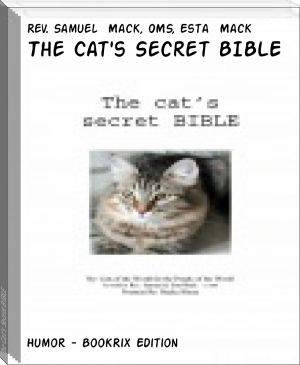Not George Washington — an Autobiographical Novel by Westbrook and Wodehouse (thriller books to read txt) 📗

- Author: Westbrook and Wodehouse
Book online «Not George Washington — an Autobiographical Novel by Westbrook and Wodehouse (thriller books to read txt) 📗». Author Westbrook and Wodehouse
Well, it was shortly afterwards that I had received a visit from Mr. Cloyster—the visit which ended in my agreeing to sign whatever manuscripts he sent me, and forward him all cheques for a consideration of ten per cent. Softest job ever a man had. Easy money. Kudos—I had almost too much of it. Which takes me back to the G.M.'s remark about my leaving the office. Since he's bought that big house at Regent's Park he's done a lot of entertaining at the restaurants. His name's always cropping up in the "Here and There" column, and naturally he's a subscriber to the Strawberry Leaf. The G.M. has everything of the best and plenty of it. (You don't see the G.M. with memo. forms tucked round his cuffs: he wears a clean shirt every morning of his life. All tip-top people have their little eccentricities.) And the Strawberry Leaf, the smartest, goeyest, personalest weekly, is never missing from his drawing-room what-not. Every week it's there, regular as clockwork. That's what started my literary reputation among the fellows at the "Moon." Mr. Cloyster was contributing a series of short dialogues to the Strawberry Leaf—called, "In Town." These, on publication, bore my own signature. As a matter of fact, I happened to see the G.M. showing the first of the series to Mr. Leach in his private room. I've kept it by me, and I don't wonder the news created a bit of a furore. This was it:——
IN TOWN BY SIDNEY PRICE No. I.—THE SECRECY OF THE BALLET (You are standing under the shelter of the Criterion's awning. It is 12.30 of a summer's morning. It is pouring in torrents. A quick and sudden rain storm. It won't last long, and it doesn't mean any harm. But what's sport to it is death to you. You were touring the Circus in a new hat. Brand new. Couldn't spot your tame cabby. Hadn't a token. Spied the Cri's awning. Dashed at it. But it leaks. Not so much as the sky though. Just enough, however, to do your hat no good. You mention this to Friendly Creature with umbrella, and hint that you would like to share that weapon.) FRIENDLY CREATURE. Can't give you all, boysie. Mine's new, too. YOU. (in your charming way). Well, of course. You wouldn't be a woman if you hadn't a new hat. FRIENDLY CREATURE. Do women always have new hats? YOU. (edging under the umbrella). Women have new hats. New women have hats. FRIENDLY CREATURE. Don't call me a woman, ducky; I'm a lady. YOU. I must be careful. If I don't flatter you, you'll take your umbrella away. FRIENDLY CREATURE (changing subject). There's Matilda. YOU. Where? FRIENDLY CREATURE. Coming towards us in that landaulette. YOU. Looks fit, doesn't she? FRIENDLY CREATURE. Her! She's a blooming rotter. YOU. Not so loud. She'll hear you. FRIENDLY CREATURE (raising her voice). Good job. I want her to. Stumer! YOU. S-s-s-sh! What are you saying? Matilda's a duchess now. FRIENDLY CREATURE. I know. YOU. But you mustn't say "Stumer" to a duchess unless—— FRIENDLY CREATURE. Well? YOU. Unless you're a duchess yourself? FRIENDLY CREATURE. I am. At least I was. Only I chucked it. YOU. But you said you were a lady. FRIENDLY CREATURE. So I am. An extra lady—front row, second O.P. YOU. How rude of me. Of course you were a duchess. I know you perfectly. Gorell Barnes said—— FRIENDLY CREATURE. Drop it. What's the good of the secrecy of the ballet if people are going to remember every single thing about you? (At this point the rain stops. By an adroit flanking movement you get away without having to buy her a lunch.)Everyone congratulated me. "Always knew he had it in him," "Found his vocation," "A distinctly clever head," "Reaping in the shekels"—that was the worst part. The "Moon," to a man, was bent on finding out "how much Sidney Price makes out of his bits in the papers." Some dropped hints—the G.M., Leach, and the men at the counter. Others, like Tommy Milner, asked slap out. You may be sure I didn't tell them a fixed sum. But it was hopeless to say I was getting the small sum which my ten per cent. commission worked out at. On the other hand, I dared not pretend I was being paid at the usual rates. I should have gone broke in twenty-four hours. You have no idea how constantly I was given the opportunity of lending five shillings to important members of the "Moon" staff. It struck me then—and I have found out for certain since—that there is a popular anxiety to borrow from a man who earns money by writing. The earnings of a successful writer are, to the common intelligence, something he ought not really to have. And anyone, in default of abstracting his income, may fall back upon taking up his time.
It did, no doubt, appear that I was coining the ready. Besides the Strawberry Leaf, Features, and The Key of the Street were printing my signed contributions in weekly series. The Mayfair, too, had announced on its placards, "A Story in Dialogue, by Sidney Price."
This, then, was my position on the morning when I was late at the "Moon" and lost my bonus.
Whilst I went up in the lift to the New Business Room, and whilst I was entering the names and addresses of inquirers in the Proposal Book, I was trying to gather courage to meet what was in store.
For the future held this: that my name would disappear from the papers as suddenly as it had arrived there. People would want to know why I had given up writing. "Written himself out," "No staying power," "As short-lived as a Barnum monstrosity": these would be the remarks which would herald ridicule and possibly pity.
And I should be in just the same beastly fix at the "Hollyhocks" as I was at the "Moon." What would my people say? What would Norah say?
There was another reason, too, why a stoppage of the ten per cent. cheques would be a whack in the eye. You see, I had been doing myself well on them—uncommonly well. I had ordered, as a present to my parents, new furniture for the drawing-room. I had pressed my father to have a small greenhouse put up at my expense. He had always wanted one, but had never been able to run to it. And I had taken Norah about a good deal. Our weekly visit to a matinie (upper circle and ices), followed by tea at the Cabin or Lyons' Popular, had become an institution. We had gone occasionally to a ball at the Town Hall.
What would Norah say when all this ended abruptly without any explanation?
There was no getting away from it. Sidney Price was in the soup.
CHAPTER 20 — NORAH WINS HOME
(Sidney Price's narrative continued)
My signed work had run out. For two weeks nothing had been printed over my signature. So far no comment had been raised. But it was only a question of days. But then one afternoon it all came right. It was like this.
I was sitting eating my lunch at Eliza's in Birchin Lane. Twenty minutes was the official allowance for the meal, and I took my twenty minutes at two o'clock. The St. Stephen's Gazette was lying near me. I picked it up. Anything to distract my thoughts from the trouble to come. That was how I felt. Reading mechanically the front page, I saw a poem, and started violently. This was the poem:—
A CRY Hands at the tiller to steer: A star in the murky sky: Water and waste of mere: Whither and why? Sting of absorbent night: Journey of weal or woe: And overhead the light: We go—we go?




Comments (0)